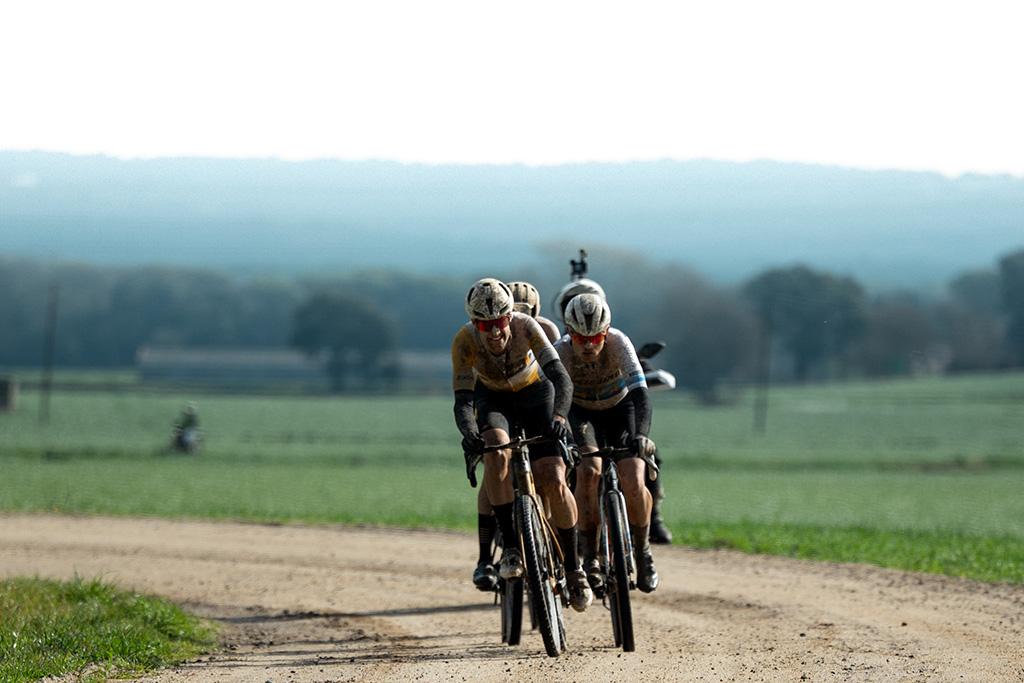'It's all part of my career path' – Pavel Sivakov's difficult journey from a super talent to super domestique
'Tadej has the capacity to stay calm and not really get stressed about stuff, I'm not like that' says UAE rider
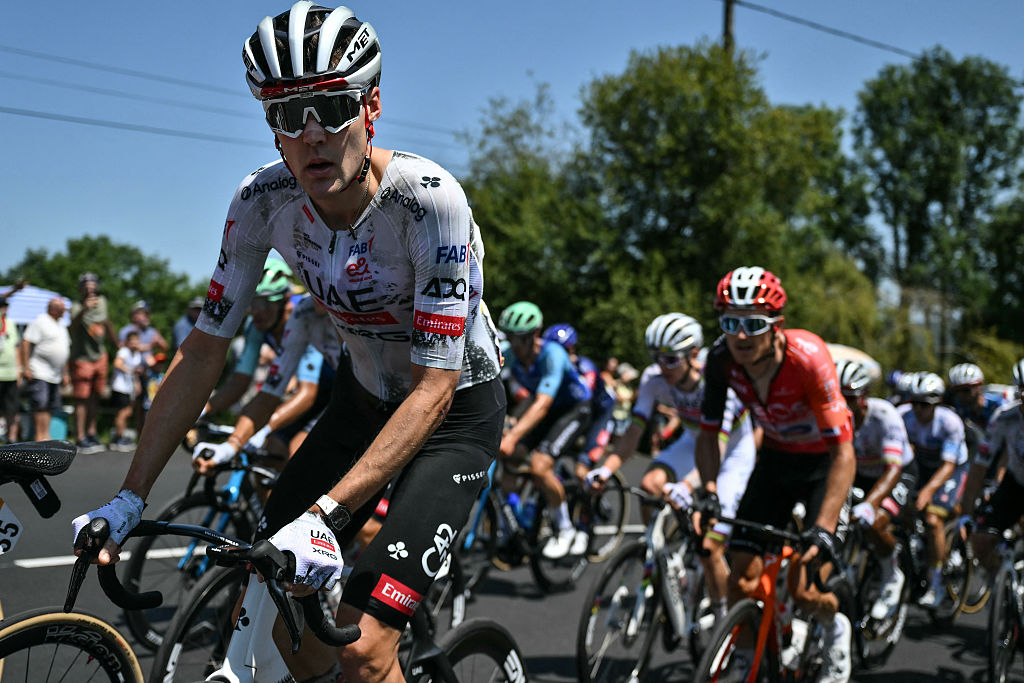
The latest race content, interviews, features, reviews and expert buying guides, direct to your inbox!
You are now subscribed
Your newsletter sign-up was successful
Pavel Sivakov's career trajectory has evolved from the sky-rocketing arc of a teenage super talent, to that of a loyal super domestique for Tadej Pogačar at UAE Team Emirates-XRG, often more focused on other people's wins than his own.
The Frenchman was once tipped to win Grand Tours, but Sivakov's DNA, his gentle, intelligent personality and a dash of external destiny combined to decide that other riders would rise to the top, while he slipped down the hierarchy.
It's a tough physiological-psychological paradox to try to understand but professional cycling is a cruel, selective sport that reflects Darwin's theory of evolution and the survival of the fittest.
Sivakov has thought about it a lot and is not afraid to talk about it.
"I've reflected quite a lot on my career path. It's good to be asked about it and something I'm not afraid to discuss," Sivakov says, opening up, when Cyclingnews approaches the subject during an end of season interview.
"Reflecting and trying to understand what happened to me is actually part of my journey, it's all part of my career path."
In 2017 Sivakov won the under-23 Giro d'Italia, the Ronde de l'Isard and the Giro della Valle d'Aosta while riding for the BMC Development Team, but was tempted away from Jim Ochowicz's structure by Team Sky, putting professional opportunity above team loyalty.
The latest race content, interviews, features, reviews and expert buying guides, direct to your inbox!
He looked set to follow in Chris Froome and Geraint Thomas' footsteps as he turned pro with the British team in 2018. In 2019 he was only 22-years-old but won the Tour of the Alps, the Tour de Pologne and was ninth in the Giro d'Italia. The 2020 season was disrupted by the COVID pandemic, and Sivakov never again lived up to his expected potential.
"2019 was my breakout season, then I had two or three years where I didn't develop as I would have liked," Sivakov explains.
"Then I struggled a little bit, maybe mentally first of all. For sure I put too much pressure on myself, trying to do too much. Perhaps I wasn't confident enough to listen to myself and I just followed my coach's training plans."
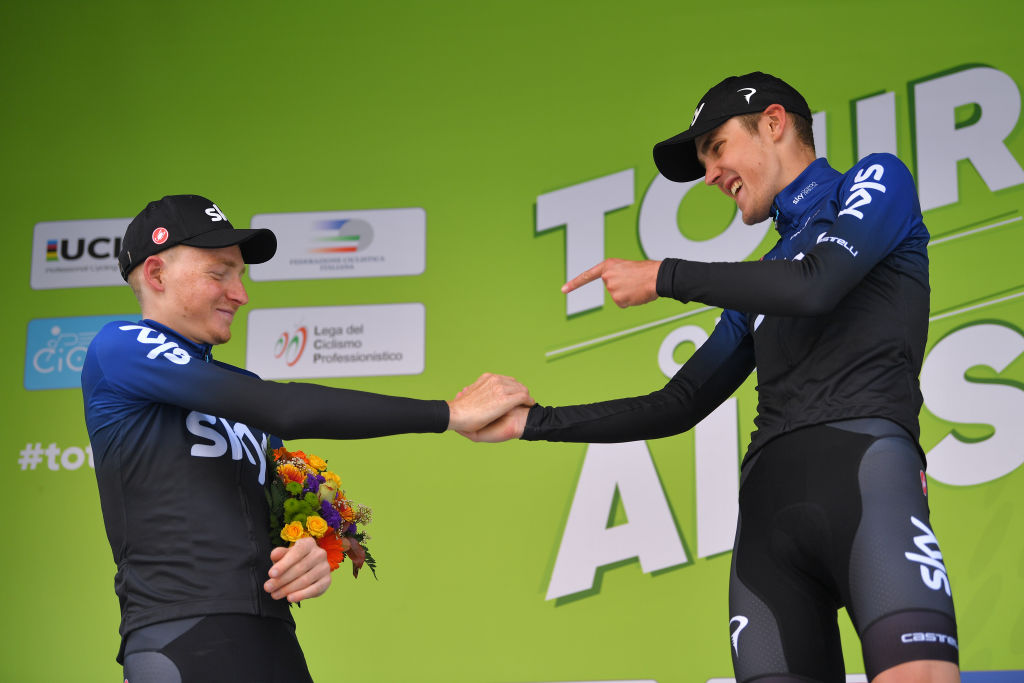
Like so many riders, Sivakov over-trained and pushed himself far too much.
"I think it comes a little bit from my roots, maybe with my parents, the Soviet style, where even if you're dead, you train, you do the hours, you do more," Sivakov says, recalling that his mother and father, Aleksandra Koliaseva and Alexei Sivakov, were both successful professional riders.
Born in Italy to Russian parents, Sivakov grew up in France, and switched his nationality from Russian to French in 2022.
"I'd see Geraint Thomas and Chris Froome doing more and more. I was this young guy and I wanted to do the same.
"Then you start to be too stressed, you train too much, you diet too much, and you maybe even crash a bit too much. It becomes a vicious circle."
Sivakov's talents and his under-23 success meant he was luckier than most riders. He had five years at Team Sky/Ineos Grenadiers before UAE signed him as a super Grand Tour domestique for Pogačar in 2024.
"I'm lucky, I have a good engine, I have some talent, so I would always perform here or there, but I was never really consistent," he admits.
After the COVID pandemic, 'a longer, slower career path'
Sivakov was caught up and surprised by the whirlwind transformation of professional cycling after the COVID pandemic. The success of Pogačar, Remco Evenepoel's prodigious rise from the junior ranks, the changes in nutrition, more aggressive racing style, plus his own problems, all combined to leave Sivakov struggling to live up to the huge expectations he had created for himself as a super talent.
"I think some guys develop really quickly. They get it and it's easier for them. For me, it's been a longer, slower career path," Sivakov explains.
"Tadej has the capacity to stay calm and not really get stressed about stuff. I'm not like that, I used to get stressed about some little details and eventually that would slow me down."
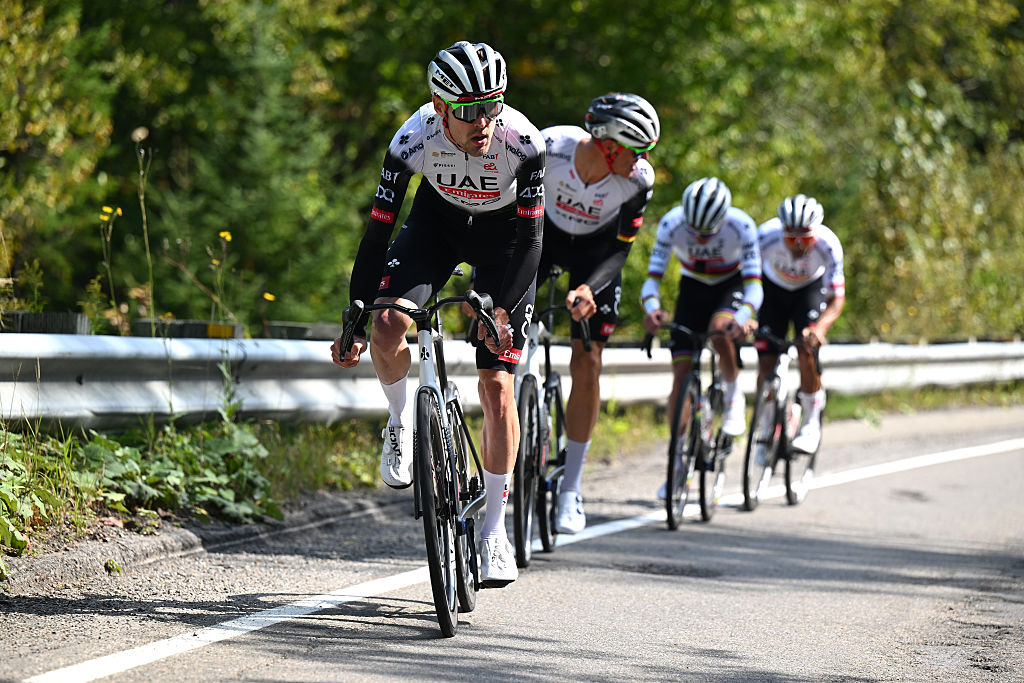
In the younger riders coming up after him, Sivakov sees more of what's needed to turn potential into success straight away.
"Paul Seixas is like Tadej and Geraint Thomas. He's not like me, he doesn't overthink stuff. He'll have pressure to perform but that's part of his journey. After getting to know him, I think as long as he enjoys racing and riding his bike, he'll be fine."
The 2025 season acts as something of a microcosm that reflects Sivakov's wider career path, and the hurdles he has faced.
He started off with overall victory at the Vuelta a Andalucia, beating the likes of Tom Pidcock (Q36.5) and Maxim Van Gils (Red Bull-Bora-Hansgrohe) but then fell ill, went deep at Paris-Nice and the Volta a Catalunya and then struggled. His talent ensured he still earned a place in Pogačar's Tour de France squad but he again fell ill during the race.
"The Tour was a big disappointment for me. I wanted to be there with the boys and on form but I was getting dropped on the first climb. That was mentally hard because I know I'm better than that," Sivakov explains.
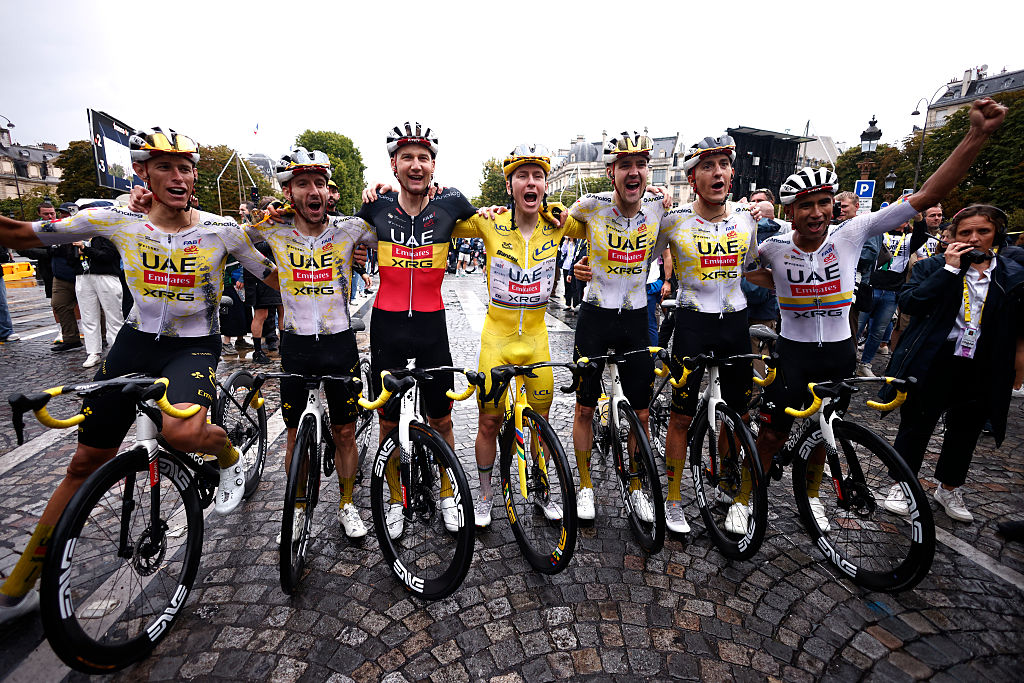
Fortunately Sivakov's bad memories were eased by Pogačar's fourth victory.
"We created a really good bond in the Tour and that helped me a lot, it helped me make it to Paris," he says. "I suffered personally but I was again part of the Tour winning team, that's always special."
The flame of ambition is still alive
Despite his many cycling vicissitudes, Sivakov seems happy and is still motivated, hard working and ambitious.
He recovered from the fatigue of the Tour at home in Andorra in August and had a strong end of season. He was second at the Grand Prix Cycliste de Québec and the Giro del Veneto, and was also second in the World Championship Mixed Relay event for France. He also helped Pogačar and UAE win many times in the final weeks of the season.
Sivakov has perhaps slipped further down the UAE leadership pecking order, behind Isaac del Toro and Brandon McNulty, but is still a vital member of the team and likely to be part of the Tour squad in 2026. Next season is also a contract year and so will impact Sivakov's future, at UAE and for the final years of his career.
"I'm still progressing every year, my numbers are getting better and better. I honestly think I will come into my best years, because I've learnt how to manage myself so much more," he says, determined not to slip into a resigned, purely domestique role.
"I still have ambitions. I want to win. I'm trying to find a good balance, avoid the mistakes and so be there all year and perform. It's not easy for anyone.
"I don't want to get too relaxed and in a comfort mode as just a domestique. I'm happy to work for Tadej and the team when I can make a difference but I still want to try to win races, to go on the attack and fight for the victory. That's what I train for every day."

Stephen is one of the most experienced members of the Cyclingnews team, having reported on professional cycling since 1994. Before becoming Editor-at-large, he was Head of News at Cyclingnews. He has previously worked for Shift Active Media, Reuters and Cycling Weekly. He is a member of the Board of the Association Internationale des Journalistes du Cyclisme (AIJC).
You must confirm your public display name before commenting
Please logout and then login again, you will then be prompted to enter your display name.
